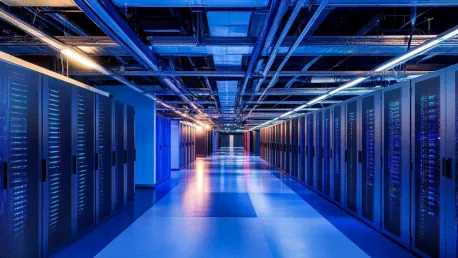The recently announced acquisition of Miami I by RadiusDC is set to have a significant impact on South Florida’s data center landscape. Located in Sweetwater, Florida, Miami I has been recognized as one of the most interconnected data centers in the region. The acquisition is part of RadiusDC’s strategic plan to expand its connectivity-focused platform, backed by IPI Partners, LLC. This move is not only a major milestone for RadiusDC but also reflects broader trends within the data center industry.
The Miami I facility, previously owned by NextStream, boasts robust infrastructure designed to withstand extreme weather conditions, including Category 5 hurricane winds. Furthermore, its carrier-neutral, telecom-focused design makes it an optimal choice for latency-sensitive workloads, appealing to customers requiring swift and reliable intercontinental data transfers.
Strategic Expansion in South Florida
Enhancing Connectivity and Infrastructure
Miami I stands out due to its impressive “meet-me-room,” which provides scalable and robust connectivity to 11 different fiber optic and network service providers. This facility, emphasizing its role as a significant connectivity hub, is poised to strengthen digital infrastructure in South Florida significantly. With seamless connectivity to both European and South American markets, Miami I caters to the increasing demand for efficient intercontinental data transfer.
RadiusDC’s support from IPI Partners, LLC, the world’s largest privately held investment platform exclusive to data centers, is pivotal. IPI’s backing enables RadiusDC to invest further in Miami I, enhancing its capacity from 3.2 megawatts (MW) of critical IT power to approximately 9.2 MW by the first half of 2026. This substantial expansion signifies RadiusDC’s commitment to scaling up its operations to meet growing digital and connectivity demands.
Remarkable Resilience and Capacity
The engineering design of Miami I is tailored to handle the unique challenges of the South Florida environment, particularly its susceptibility to hurricanes. The facility’s resilience and the robust structure can endure Category 5 hurricanes, ensuring that operations remain uninterrupted even during extreme weather events. This aspect of the data center is crucial for clients needing reliable and constant connectivity without concerning weather-induced disruptions.
Additionally, being a carrier-neutral data center, Miami I provides an open marketplace for telecom providers. This flexibility is particularly appealing to businesses with specific or evolving connectivity needs, as it allows them to choose from multiple telecommunications providers without being locked into a single vendor.
Impact on the Data Center Industry
Aligning with Industry Trends
The acquisition of Miami I by RadiusDC is in line with the broader trends within the data center industry. As the digital landscape evolves, there is an increasing necessity for improved connectivity, scalability, and robust infrastructure capable of enduring natural calamities. The industry has recognized the significance of such advancements, and RadiusDC’s acquisition is a testament to this recognition.
The broader sector is witnessing a transformation with entities like TierPoint and US Signal making similar strategic acquisitions. These moves underscore a consensus on the importance of expanding and fortifying data center infrastructure to cater to diverse customer needs, including those of hyperscale clients requiring extensive data processing and storage capabilities.
Strategic Realignments and Growth
The acquisition also represents a strategic realignment for Actis, the previous owner of Miami I. Actis expressed optimism about the growth potential under RadiusDC’s stewardship, while it refocuses its efforts on the burgeoning Latin American market. This shift is part of a broader strategy to enhance and expand its influence within Latin America, indicating a targeted approach to regional data center markets.
Each player in the industry is adjusting their focus to address specific market demands. Actis’s move highlights a trend of companies refining their strategies to maximize their regional impact and capitalize on market growth opportunities.
Addressing Sustainability and Innovation
Embracing Environmental Standards
In addition to connectivity and capacity, the data center industry is increasingly prioritizing sustainability. The article highlights ongoing efforts within the sector to address the environmental impact of operations. Companies like Vantage Data Centers and Digital Power Optimization are leading the charge in implementing environmental initiatives that adhere to Environmental, Social, and Governance (ESG) standards.
These efforts are critical as the industry grapples with the energy demands driven by artificial intelligence and other emerging technologies. Innovative cooling systems and renewable energy sources are becoming focal points in the quest for sustainable data center operations.
Technological Advancements
RadiusDC’s acquisition of Miami I aligns with broader trends in the data center industry. As the digital landscape continues to evolve, there’s a growing need for better connectivity, scalability, and resilient infrastructures that can withstand natural disasters. The data center sector acknowledges the importance of these advancements, and RadiusDC’s move is a clear reflection of this understanding.
The industry is undergoing a significant transformation, with companies like TierPoint and US Signal also making strategic acquisitions in response to these needs. These actions highlight a collective agreement on the necessity of expanding and strengthening data center infrastructures to meet a variety of customer demands. This includes hyperscale clients who need extensive data processing and storage solutions.
Specifically, these moves cater to the growing digital demands of today’s businesses, ensuring they have the robust and scalable infrastructure required to support burgeoning data needs. In summary, RadiusDC’s acquisition is a strategic step in fortifying its position in an increasingly competitive and rapidly evolving market.









